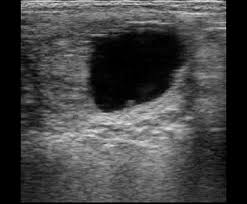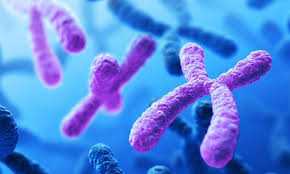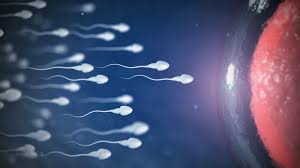Men Should Also Be Responsible for Early Embryonic Death
Date:2019-08-22 click:0
Early embryonic death refers to the pathological process of spontaneous termination of embryonic development and embryo loss in early pregnancy. The pregnancy outcome usually ends up with missed abortion and incomplete abortion. Ultrasonographic examination showed uterine enlargement with multiple anechoic spots or light masses, no gestational sac, incomplete gestational sac, no embryonic tissue, no fetal heart or fetal movement.
Early embryonic death is a common obstetric complication. Its etiology is involved, including chromosomal factors, endocrine factors, infectious factors, immune factors, environmental factors, and other factors. Besides, there are still about 50% of cases can not find the reason.
At present, the research on embryo sterilization mainly focuses on women, and the related study of males is relatively few. The current research results show male factors causing embryo sterilization are as follows:

1. Hereditary factors
Chromosome abnormality is one of the principal reasons leading to adverse pregnancy outcomes. The influence of male reproductive dysfunction caused by a genetic defect on embryo sterility can not be ignored. Genes on chromosome guide and regulate spermatogenesis and motility. These genes directly or indirectly affect spermatogenesis. Relevant data show that 4% of male infertility cases are related to sex chromosome lesions.
2. Chromosome structural abnormalities
Chromosome structural abnormalities refer to chromosome aberrations and chromatic aberrations caused by chromosome or chromatid breakage-replacement or exchange mechanism. Robertson translocation, balanced translocation, and inversion are common structural aberrations causing early embryo death.
3. Y chromosome microdeletions
There are at least three spermatogenic sites (AZFa, AZFb, and AZFc) on the chromosome, which locates at proximal, middle, and distal ends of Yq11, respectively. Among them, the highest rate of AZFc deletion was found, which can cause azoospermia and severe oligozoospermia, which was one of the keys and complicated causes of male infertility.

4. Sperm genetic abnormalities
The genetic abnormalities of sperm, such as loss or alteration of sperm centrosome, gene replication errors, DNA, and RNA deletion can affect sperm function and result in embryo sterilization. A large number of sperm nuclear DNA fragmentation or breakage cause damages to embryonic development.
5. Semen quality
As the most important and intuitive indicator of male fertility, semen quality has been attached great importance. Semen routine is also the most commonly used and necessary means of vigorous examination in the clinic. Studies have shown that sperm quality decline, anti-sperm antibody formation, sperm nucleoprotein histotype conversion deficiency, sperm cell apoptosis rate increase may have an impact on early embryo death.
Unbalanced nutrition, bad habits, and neglect of personal hygiene, disease, and other factors may affect men's sperm quality. Prostatitis, epididymitis, vasovasitis, and seminal vesiculitis affect sperm storage and survival, resulting in male infertility. Patients need active treatment, and they can also be treated through natural medicine Diuretic and Anti-inflammatory Pill.

It can sterilize and eliminate inflammation without side effects and drug resistance, relieve patients'discomfort and pain, and other symptoms. Besides, it can completely cure the disease, enhance the immunity of patients, thus effectively improve the quality of men's sperm.
6. Infectious factors
Males infected with Ureaplasma urealyticum and Chlamydia trachomatis usually will spread to their female partners, causing the female immune system reaction. Damage or interference to the embryos in the uterus, and possibly interfering with the regulation mechanism of the autoimmune system that protects the embryos, thus increasing the probability of early embryo death.



